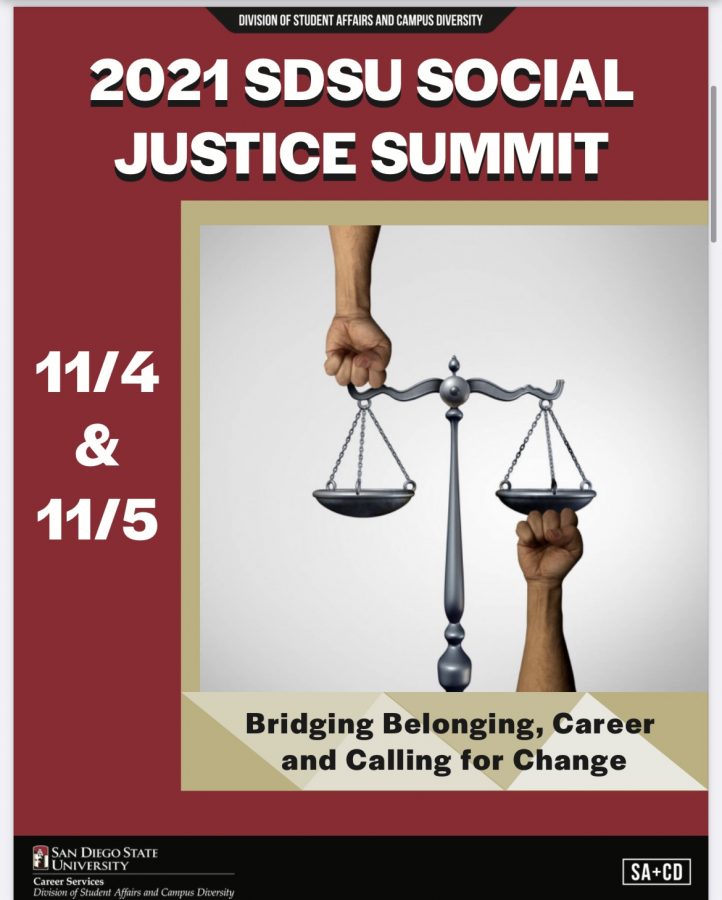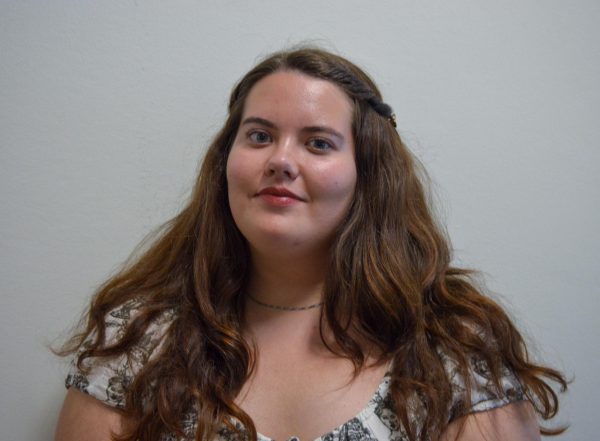San Diego State’s career services branch of the Division of Student Affairs and Campus diversity held a two-day hybrid social justice summit on Nov. 4 and 5.
This year’s theme “Bridging Belonging, Career and Calling for Change” emphasized the summit’s focus on social justice in the workplace and in everyday life.
On Thursday evening, the event started with a networking event held in Montezuma Hall and on Zoom, which allowed students, faculty and community members to meet and connect. 2021’s appointed Social Justice Summit Co-Chairs Claudia Martinez and Eunice Flores formally opened the event. Martinez is a member of the SDSU faculty as an experiential learning specialist, while Flores acts as the assistant director for the Center for Student Life.
Griselda Ramirez spoke about her upbringing, as well as her early involvement in political campaigns guided her towards a career in social justice.
“I grew up in the Los Angeles area, and I was able to see inequities between neighborhoods,” Ramirez said. “I always had the question ‘why do neighborhoods look different?’ and that’s when someone told me that neighborhoods that vote get resources. That stuck with me, so I started volunteering with political campaigns and educating people on why they should vote.”
Ramirez works in the Office of San Diego County Supervisor Nora Vargas and has also built successful civic engagement programs in City Heights.
Rebecca Bartel Nuñez, Ramirez and Daryl Bambridge spoke on a panel on the pathways to finding careers connected to social justice
Nuñez is an Associate Professor in the Department for the Study of Religion, as well as the Associate Director of the Center for Latin American Studies at SDSU. Nuñez’s research on structural violence in the Americas has earned her the title of the Fred J. Hansen Endowed Peace Chair at the College of Arts and Letters.Bambridge is a General Manager for the San Diego branch of the Cintas Corporation.
Nuñez explained that her upbringing and politically aware family also propelled her towards a career in social justice.
“I grew up in a household where the values of peace and justice were debated hotly around the kitchen table,” Nuñez said. “What do these words mean? Is it actually possible for the world to be better? Can we work collectively towards a horizon of peace and justice? This became a conviction and a need to make an impact for me.”
The second day of the summit was held virtually on Zoom. Participants could choose from an array of different workshops hosted by SDSU faculty, staff and prominent members of the community.
These workshops included topics such as social justice internships, identity consciousness within career journeys, how to incorporate activism into your career and much more.
Dr. Ricky Pope of SDSU Counseling and Psychological Services closed out the summit with a session entitled “Striving While Black: Exploring Cognitive, Affective, and Behavioral Strategies to Manage Wellbeing and Persist toward Upward Mobility.”
Dr. Pope’s session focused on mental health and self-care for social justice advocates, and also touched upon strategies to work through racial identity.
“Diversity, equity and inclusion is a lifelong learning process and it has taken center stage in the workplace,” Flores said.
All sessions from 2021’s social justice summit will be available for viewing on the SDSU Career Services website after Nov. 13.









